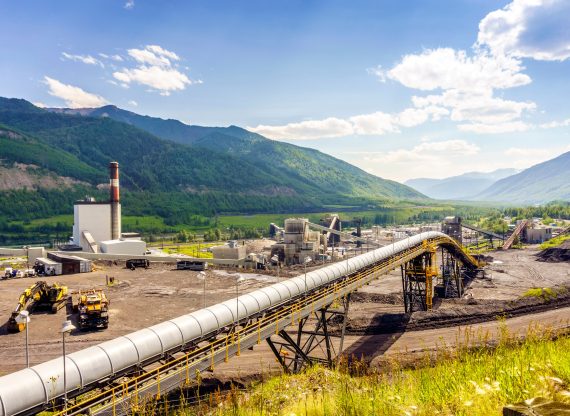Natural resource development is economic reconciliation

The Government of Canada has announced it will be restricting oil and gas subsidies unless they meet one or more of a short list of criteria, one of which is: “Support Indigenous economic participation in fossil fuel activities.”
It didn’t take much more than this for some to go from being purported champions of First Nations’ right to self-determination to claiming this was just one more loophole that “must be closed to align with climate commitments.”
Instead, could the government’s announcement be a nod to its pledge for reconciliation, and more specifically economic reconciliation, with Indigenous communities? After all, this exemption for Indigenous participation is meant to avoid preventing them from investing in the oil and gas sector if they decide to do so.
While reconciliation has been a prominent theme in the federal government’s policy agenda for years, the promise of economic reconciliation has only recently entered the discourse. The concept is gaining momentum, with two senators hosting an “advancing economic reconciliation on Parliament Hill” event in Ottawa this June.
While the federal government doesn’t have a precise definition of what economic reconciliation is, many First Nations do. According to Dale Swampy from the National Coalition of Chiefs, for instance, economic reconciliation means an end to the vicious cycle of the social welfare economy. Put more positively, it’s a way for First Nations to reaffirm their autonomy and self-reliance. Unfortunately, this has long been undermined by the federal government’s obstruction of the growth of the natural resource industry – specifically the oil and gas sector.
Natural resource development projects provide key economic opportunities to thousands of Indigenous Canadians. This is especially true for those who live on reserves far from large urban centres, who may not have alternative employment.
Take Fort McKay First Nation in Alberta, for example. Fort McKay has lower unemployment and higher household income than the average First Nation in Canada due to decades of partnership-building with industry and natural resource development in the Alberta oilsands.
This is no surprise when you consider the median income for self-identified Indigenous Canadians working in oil and gas is about $144,000, whereas the median across all sectors is only $46,800, according to data from the latest census.
Not only that, but there are also often considerable community benefits, such as various educational, training, and partnership opportunities, linked to natural resource development projects.
The Northern Gateway Project, for example, had pledged to support Indigenous communities and businesses, work to develop community capacity, and support long-term skills development and training. There was a reported $2 billion set aside for this.
Then there are the infusions to government revenues, which could be mobilized in part to advance other aspects of reconciliation. Estimated impacts over Northern Gateway’s lifespan included a total increase in government revenue over the operating period of $2.9 billion annually, which is just under the total amount spent by the federal government on infrastructure projects to expand on-reserve access to clean drinking water over seven years. Despite the expected gains, however – and even though nearly 60 per cent of identified Indigenous communities in its proximity supported the project, and even held equity shares – the federal government rejected the project in 2016, in what disappointed leaders of several affected First Nations said was a political decision.
In recent years, many First Nations have not only been vocal supporters of resource development but have sought to become large-scale investors. Take the Cedar LNG project in British Columbia, for instance, which is the world’s first Indigenous majority-owned LNG project. Not only is it expected to provide stable and significant benefits for the region, but it also has one of the cleanest environmental profiles in the world.
Not impeding major energy projects that First Nations are supportive of, or have invested in, is the least the government can do. After all, blocking them from ensuring their prosperity is a pretty bad way of following through on its pledges of reconciliation.
Krystle Wittevrongel est analyste senior en politiques publiques et leader du Projet Alberta à l’IEDM. Elle est l’auteure de « Les obstacles à l’exploitation des ressources naturelles compromettent la réconciliation économique avec les peuples autochtones » et signe ce texte à titre personnel.

